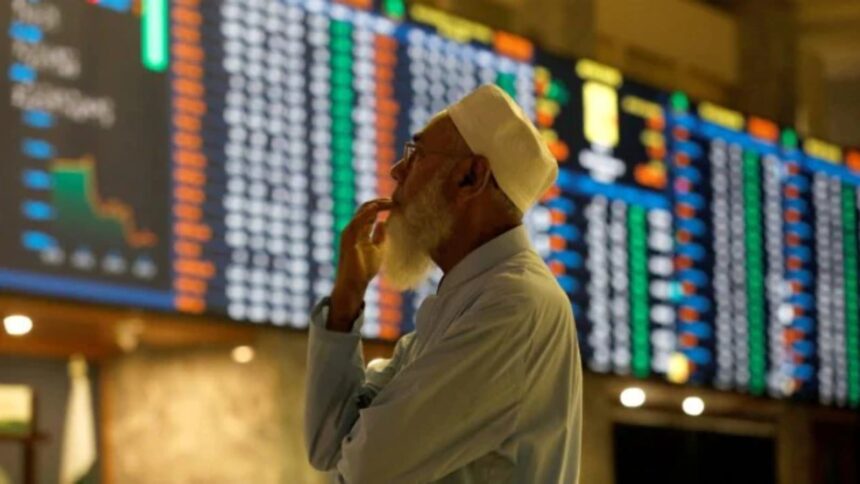Pakistan Stock Exchange’s (PSX) benchmark KSE-100 index tanked 2,111 points, or 1.80 per cent at 1,15,115 on Thursday, a day after India’s strong diplomatic and strategic response on the terror attack in Jammu and Kashmir’s Pahalgam area.
On a weekly basis, the KSE-100 was down 1.31 per cent, according to Trading Economics data.
The KSE-100 lost 1,204 points on Wednesday owing to a shift in investors’ stance towards caution amid geopolitical tensions, according to a note by Pakistan-based brokerage Topline Securities’ sales desk.
To be sure, a key factor behind the decline on Wednesday was the IMF’s announcement of a revised GDP forecast for Pakistan, The News Pakistan reported citing Ahsan Mehanti, analyst at Pakistan-based brokerage firm Arif Habib.
JS Global analyst Muhammad Hasan Ather however stated that a potential easing on the monetary policy by Pakistan’s central bank may provide support to key indices, The News Pakistan reported.
A poll by Topline Securities showed 69 per cent of respondents expected a rate cut by the State Bank of Pakistan in its next monetary policy meeting scheduled on May 5, 2025.
In its previous meeting, SBP’s decided to maintain the policy rate at 12 per cent.
The International Monetary Fund on Tuesday revised its growth outlook for Pakistan to 2.6 per cent in April from 3 per cent in January. The Bretton Woods institution projected Pakistan’s rate at 5.1 per cent for FY25 and 7.7 per cent in FY26.
Steps taken by India after Pahalgam attack
India’s Cabinet Committee on Security, chaired by Prime Minister took several important decisions in in which 26 people were killed.
Foreign Secretary Vikram Misri announced that Pakistan nationals will be bared from travelling to India using SAARC Exemption Scheme visas. India declared defence advisors posted in the Pakistan High Commission to be persona non grata, giving them a week’s notice to leave the country. India has also decided to withdraw defence advisors posted in the Indian embassy in Islamabad.
In a move that is expected to direct a blow to Pakistan’s agriculture sector, India also decided to keep the Indus Water Treaty in abeyance.
In a trade-related move, India has closed the integrated check post at Attari-Wagah border near Amritsar, Punjab. On Thursday, India revoked all visas issued, including medical visas, issued to Pakistani nationals.
How KSE-100 responded to Uri, Pulwama terror attacks and air strike
The Pulwama terror attack on a CRPF convoy in and Kashmir on February 2019, in which 40 jawans were killed, saw the KSE-100 decline 0.09 per cent at 40,506.98 on February 14, 2019.
In the subsequent fortnight, Pakistan’s benchmark index lost nearly 1,500 points, closing at 39,054.60 on February 28, 2019. More importantly, the KSE-100 tanked nearly 2 per cent on February 26, 2019, the date of the Balakot air strike by the Indian Air Force on Jaish-e-Mohammed terror camps in Pakistan. While the index was up 0.94 per cent on that date, it was down 1,452.38 during this period, according to historical data accessed via investing.com.
In 2016, the KSE-100 was closed on the date of the attack on the Indian Army camp in Uri, Jammu and Kashmir. While the benchmark index climbed 0.13 per cent to 40,414.72 on September 19, 2016, it plunged nearly 1.60 per cent in two days to close at 39,771.42 on September 21, 2016. On September 29, 2016, the KSE-100 slipped 0.15 per cent to 40,295.52, after India announced that it had conducted a surgical strike in Pakistan-occupied Kashmir. India’s Director General Military Operations in a statement dated September 29, 2016 stated “the Indian Army conducted surgical strikes at several… launch pads to pre-empt infiltration by terrorists.”
“During these counter terrorist operations significant casualties were caused to terrorists and those providing support to them,” he added.








